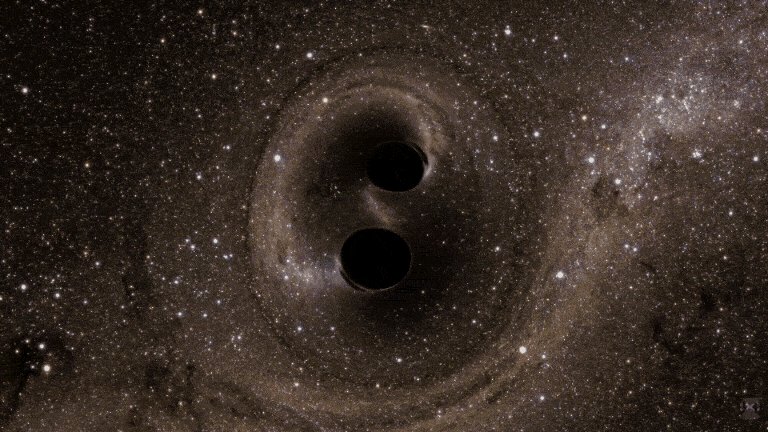Scientists discover new organ in the throat
A secret set of salivary glands has been hiding behind the nose.

Get the world’s most fascinating discoveries delivered straight to your inbox.
You are now subscribed
Your newsletter sign-up was successful
Want to add more newsletters?

Delivered Daily
Daily Newsletter
Sign up for the latest discoveries, groundbreaking research and fascinating breakthroughs that impact you and the wider world direct to your inbox.

Once a week
Life's Little Mysteries
Feed your curiosity with an exclusive mystery every week, solved with science and delivered direct to your inbox before it's seen anywhere else.

Once a week
How It Works
Sign up to our free science & technology newsletter for your weekly fix of fascinating articles, quick quizzes, amazing images, and more

Delivered daily
Space.com Newsletter
Breaking space news, the latest updates on rocket launches, skywatching events and more!

Once a month
Watch This Space
Sign up to our monthly entertainment newsletter to keep up with all our coverage of the latest sci-fi and space movies, tv shows, games and books.

Once a week
Night Sky This Week
Discover this week's must-see night sky events, moon phases, and stunning astrophotos. Sign up for our skywatching newsletter and explore the universe with us!
Join the club
Get full access to premium articles, exclusive features and a growing list of member rewards.
Scientists have discovered a new organ: a set of salivary glands set deep in the upper part of the throat.
This nasopharynx region — behind the nose — was not thought to host anything but microscopic, diffuse, salivary glands; but the newly discovered set are about 1.5 inches (3.9 centimeters) in length on average. Because of their location over a piece of cartilage called the torus tubarius, the discoverers of these new glands have dubbed them the tubarial salivary glands. The glands probably lubricate and moisten the upper throat behind the nose and mouth, the researchers wrote online Sept. 23 in the journal Radiotherapy and Oncology.
The discovery was accidental. Researchers at the Netherlands Cancer Institute were using a combination of CT scans and positron emission tomography (PET) scans called PSMA PET-CT to study prostate cancer. In PSMA PET-CT scanning, doctors inject a radioactive "tracer" into the patient. This tracer binds well to the protein PSMA, which is elevated in prostate cancer cells. Clinical trials have found that PSMA PET-CT scanning is better than conventional imaging at detecting metastasized prostate cancer.
Related: The 7 biggest mysteries of the human body
PSMA PET-CT scanning also happens to be very good at detecting salivary gland tissue, which is also high in PSMA. Until now, there were three known large salivary glands in humans: one under the tongue, one under the jaw and one at the back of the jaw, behind the cheek. Beyond those, perhaps a thousand microscopic salivary glands are scattered throughout the mucosal tissue of the throat and mouth, study co-author and Netherlands Cancer Institute radiation oncologist Wouter Vogel said in a statement.
"So, imagine our surprise when we found these," Vogel said.
To confirm the discovery, Vogel and his colleagues imaged 100 patients (99 of them men due to the focus on prostate cancer) and found that all of them had the newly discovered glands. They also dissected that nasopharynx region from two cadavers from a human body donation program and found that the newfound region consisted of mucosal gland tissue and ducts draining into the nasopharynx.
Get the world’s most fascinating discoveries delivered straight to your inbox.
The discovery could be important for cancer treatment. Doctors using radiation on the head and neck to treat cancer try to avoid irradiating the salivary glands, Vogel said, because damage to these glands can impact quality of life.
"Patients may have trouble eating, swallowing or speaking, which can be a real burden," he said.
But because no one knew about the tubarial salivary glands, no one tried to avoid radiation in that region. The researchers examined records from more than 700 cancer patients treated at the University Medical Center Groningen and found that the more radiation the patients had received in the area of the unknown glands, the more side effects they reported from their treatment. The new discovery could thus translate to fewer side effects for cancer patients.
"Our next step is to find out how we can best spare these new glands and in which patients," Vogel said. "If we can do this, patients may experience less side effects, which will benefit their overall quality of life after treatment."
Originally published on Live Science.

Stephanie Pappas is a contributing writer for Live Science, covering topics ranging from geoscience to archaeology to the human brain and behavior. She was previously a senior writer for Live Science but is now a freelancer based in Denver, Colorado, and regularly contributes to Scientific American and The Monitor, the monthly magazine of the American Psychological Association. Stephanie received a bachelor's degree in psychology from the University of South Carolina and a graduate certificate in science communication from the University of California, Santa Cruz.
 Live Science Plus
Live Science Plus










